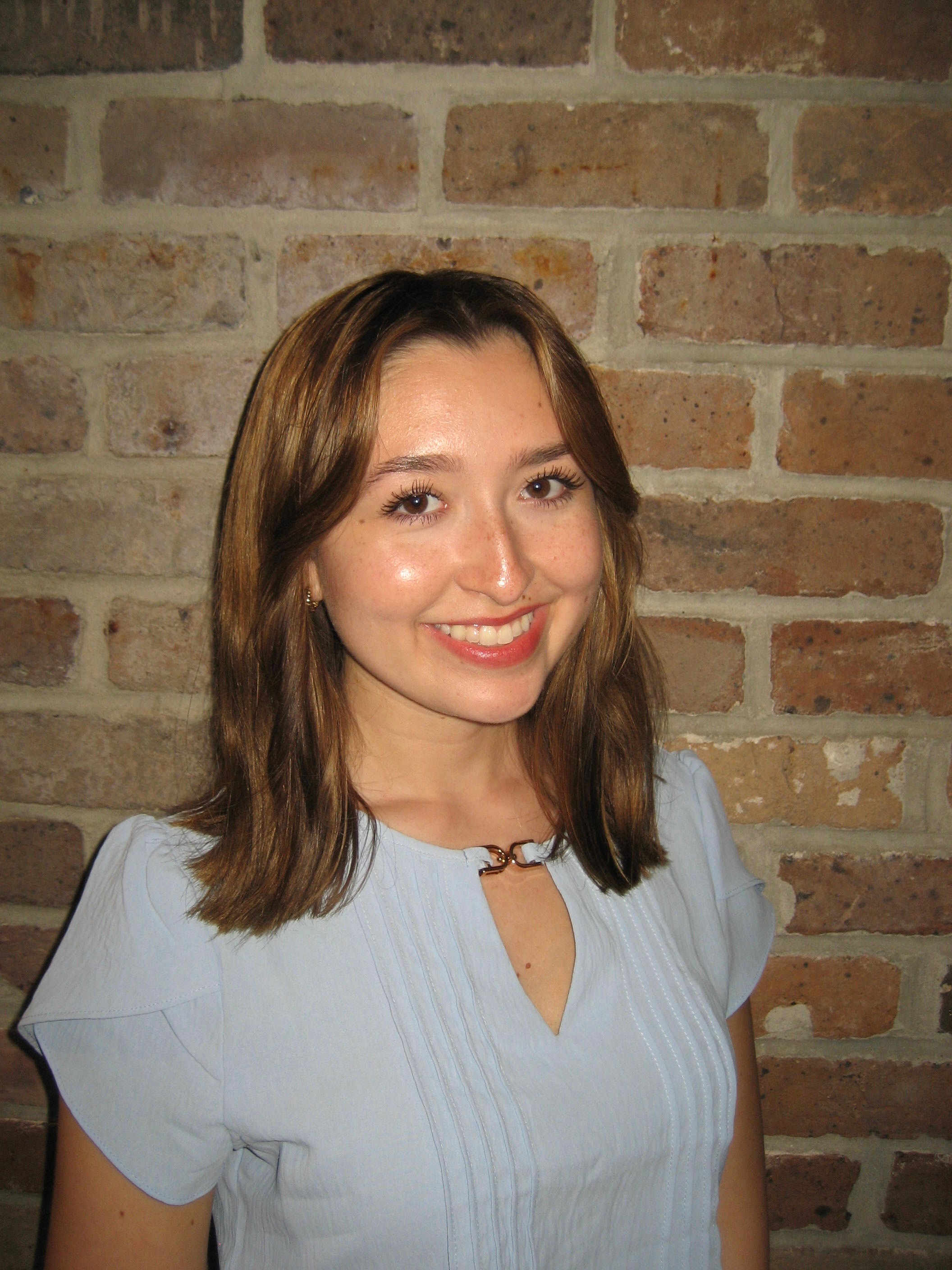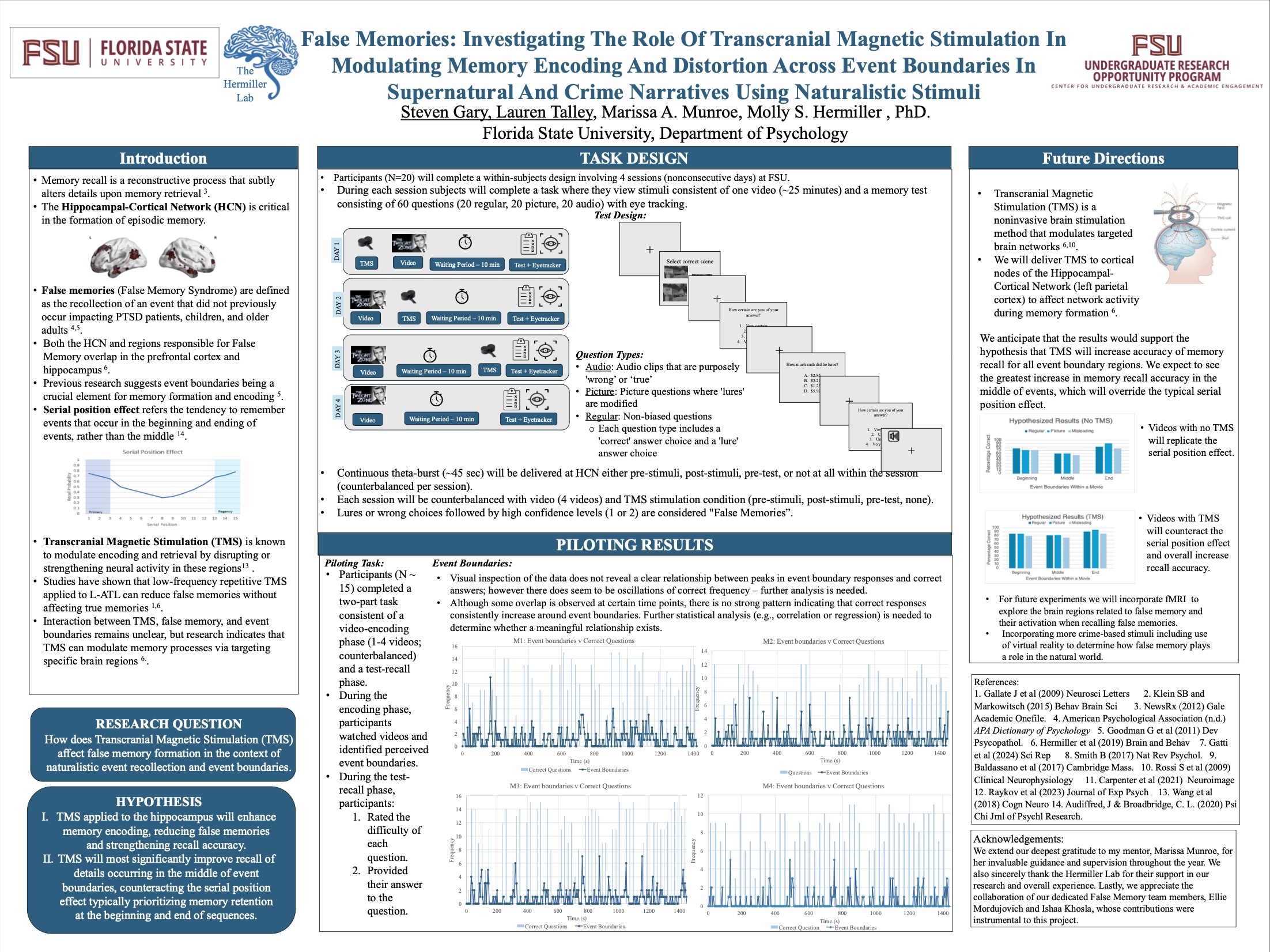Research Symposium
25th annual Undergraduate Research Symposium, April 1, 2025
Lauren Talley Poster Session 3: 1:45 pm - 2:45 pm/ Poster #218

BIO
Hello! My name is Lauren Talley and I am a second year undergraduate student from Coral Springs, Florida. I am pursing a dual-degree in Psychology & Communication Science and Disorders with a minor certificate in Interdepartmental Developmental Disabilities. I am excited about pursuing a career in health care and plan on attending graduate school to become a Speech-Language Pathologist. As a first generation student involved in FSU’s Quest Scholar program, having the opportunity to conduct research through the Hermiller Lab has provided me with fantastic research opportunities that have allowed me to expand my research horizons. In particular, I have familiarized myself with many important aspects of the brain and how stimulation can affect the formation of False memories. In the future, I hope to fuse my knowledge of psychology with my passion for helping those with communication disorders.
False Memories: Investigating The Role Of Transcranial Magnetic Stimulation In Modulating Memory Encoding And Distortion Across Event Boundaries In Supernatural And Crime Narratives Using Naturalistic Stimuli
Authors: Lauren Talley, Marissa MunroeStudent Major: Psychology & Communication Science and Disorders
Mentor: Marissa Munroe
Mentor's Department: Department of Psychology Mentor's College: Arts and Sciences Co-Presenters: Steven Gary
Abstract
False memories are defined as the distortion, in memory, of an event that has previously occurred. False memories impact a range of individuals including eyewitnesses, children, older adults with memory impairment, and individuals with PTSD. The hippocampal-cortical network (HCN) is inclusive of brain regions responsible for memory encoding and retrieval including the angular gyrus, hippocampus, and parietal lobe. Event boundaries occur when there’s a noticeable, or slight change in event scene, time, or context. They play a crucial role in memory formation by activating brain regions responsible for memory consolidation. We aim to investigate how non-invasive brain stimulation (Transcranial Magnetic Stimulation, TMS) mediates false memories, with particular focus on its effects within event boundaries. Our task includes a naturalistic test phase (a video) and a test phase (multiple choice, audio, picture questions). TMS is administered at different time points—before or after the video, before the test, or not at all (behavioral condition)—to determine the optimal stimulation timing for enhancing memory encoding, consolidation, and successful retrieval. We hypothesize that TMS applied to the left parietal site will enhance memory encoding and recall accuracy. Additionally, we predict that TMS will improve recall of details occurring in the middle of event boundaries, counteracting the recency effect, which prioritizes memory retention at the beginning and end of sequences. Results from our study will increase our understanding of how event boundaries reinforce memory consolidation and improve retrieval – additionally we will gain better understanding of how TMS affects memory retrieval for naturalistic stimuli.
Keywords: TMS, false memories, psychology


